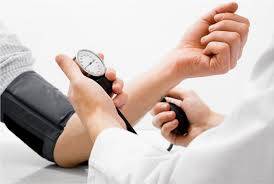7 Symptoms Your Blood Pressure Is High
High blood pressure, also known as hypertension, is a common health condition that affects millions of people worldwide. Often called the "silent killer," it frequently presents no symptoms, which means many individuals may have it without even realizing. If left untreated, high blood pressure can lead to serious complications such as heart disease, stroke, and kidney damage. However, in some cases, individuals may experience signs or symptoms that signal their blood pressure is elevated. Knowing these symptoms can help you seek medical attention early and take necessary steps to manage your health effectively.
One of the most common signs that your blood pressure might be high is frequent headaches. These headaches often occur in the morning and can be intense, particularly around the forehead. The pressure from high blood pressure can cause changes in the blood vessels of the brain, leading to these painful episodes. While headaches can be caused by other factors, if they are consistent and severe, it's worth consulting with a doctor to rule out high blood pressure as a potential cause. In many cases, these headaches may not appear until the blood pressure reaches dangerously high levels, making it important to monitor your health regularly.
Another symptom to watch out for is dizziness or lightheadedness. When blood pressure is high, the heart has to work harder to pump blood, and the blood vessels may become less flexible, leading to an inconsistent flow of blood to the brain. This can result in feelings of dizziness or faintness, especially when standing up quickly. If you frequently feel lightheaded or experience vertigo-like symptoms, it could indicate that your blood pressure is not within a healthy range. Persistent dizziness should never be ignored, as it may indicate underlying issues, including hypertension, that need to be addressed.
Some people with high blood pressure also experience shortness of breath. As the heart struggles to pump blood effectively through constricted arteries due to high pressure, the body may not get enough oxygen, leading to feelings of breathlessness. This symptom can be especially concerning if it occurs during normal activities or even at rest. Difficulty breathing can indicate that your cardiovascular system is under stress, and it may be a sign that your hypertension has reached a level that could cause damage to your heart or lungs. If shortness of breath accompanies other symptoms like chest pain, immediate medical attention is necessary.
Finally, another symptom associated with high blood pressure is chest pain or a feeling of tightness in the chest. While chest pain can also stem from a variety of conditions, including heart problems, it can also be a warning sign of hypertension, particularly if the elevated blood pressure has caused damage to the heart or arteries. When blood pressure rises, the heart has to pump harder, which can strain the heart muscle and lead to discomfort or pain. If chest pain is accompanied by other warning signs, such as shortness of breath or dizziness, it could indicate a medical emergency, and you should seek immediate help.
In conclusion, while high blood pressure may not always present noticeable symptoms, there are certain signs that could indicate the presence of hypertension. Frequent headaches, dizziness, shortness of breath, and chest pain are all potential symptoms of high blood pressure that should not be ignored. Since high blood pressure often develops gradually, it’s important to have regular check-ups and monitor your blood pressure levels, especially if you experience any of these symptoms. Managing high blood pressure through lifestyle changes, medication, and regular monitoring can help reduce the risk of serious health complications and improve overall well-being. Always consult with a healthcare professional to ensure that your blood pressure is within a healthy range.



No comments yet
Be the first to share your thoughts!